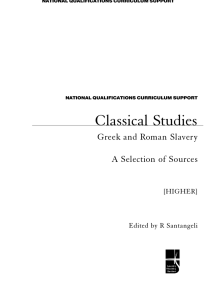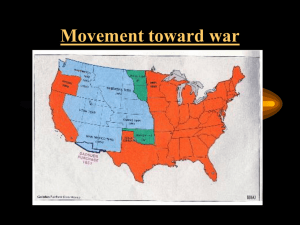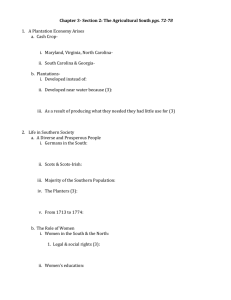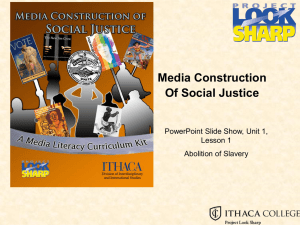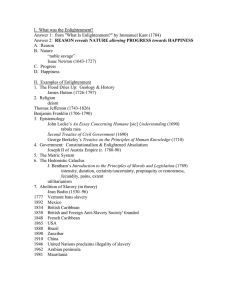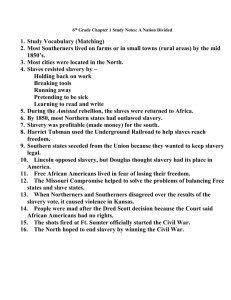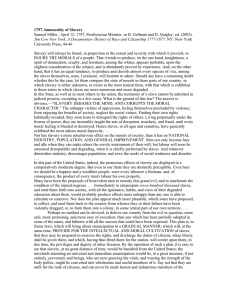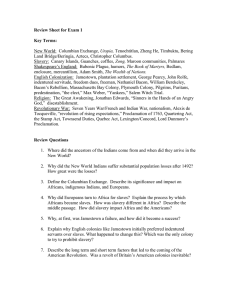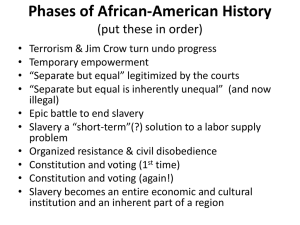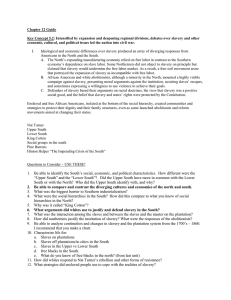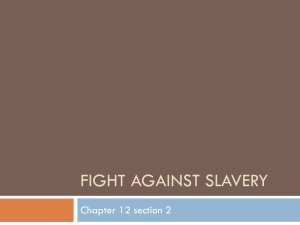– change or continuity? Lecture 10: After slavery
advertisement
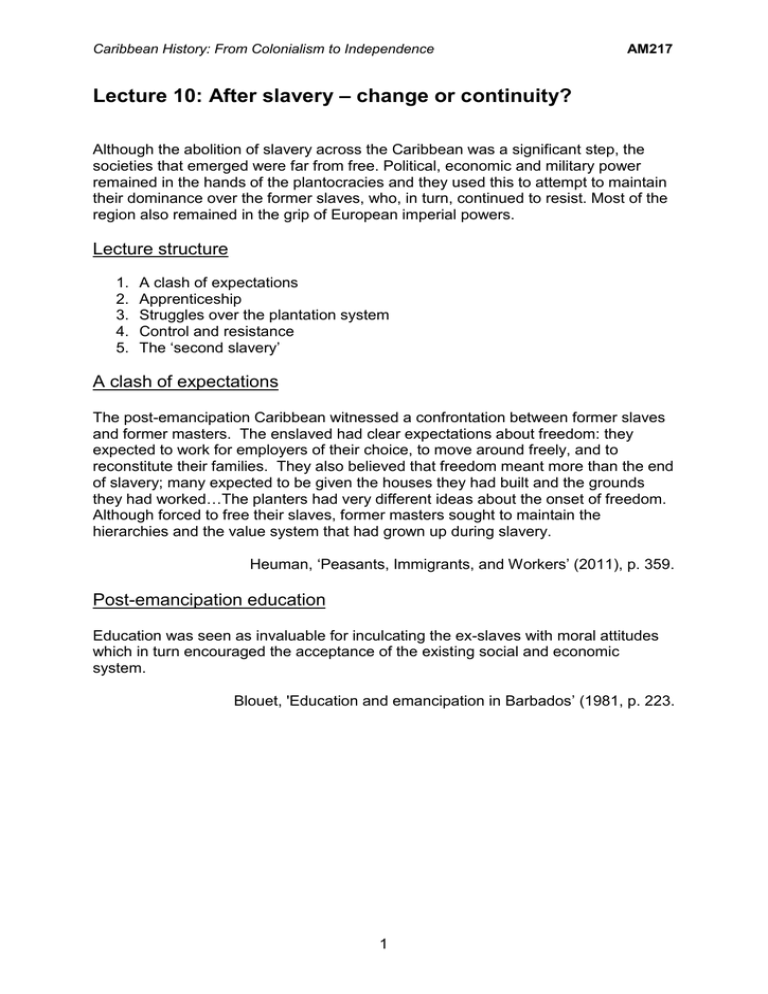
Caribbean History: From Colonialism to Independence AM217 Lecture 10: After slavery – change or continuity? Although the abolition of slavery across the Caribbean was a significant step, the societies that emerged were far from free. Political, economic and military power remained in the hands of the plantocracies and they used this to attempt to maintain their dominance over the former slaves, who, in turn, continued to resist. Most of the region also remained in the grip of European imperial powers. Lecture structure 1. 2. 3. 4. 5. A clash of expectations Apprenticeship Struggles over the plantation system Control and resistance The ‘second slavery’ A clash of expectations The post-emancipation Caribbean witnessed a confrontation between former slaves and former masters. The enslaved had clear expectations about freedom: they expected to work for employers of their choice, to move around freely, and to reconstitute their families. They also believed that freedom meant more than the end of slavery; many expected to be given the houses they had built and the grounds they had worked…The planters had very different ideas about the onset of freedom. Although forced to free their slaves, former masters sought to maintain the hierarchies and the value system that had grown up during slavery. Heuman, ‘Peasants, Immigrants, and Workers’ (2011), p. 359. Post-emancipation education Education was seen as invaluable for inculcating the ex-slaves with moral attitudes which in turn encouraged the acceptance of the existing social and economic system. Blouet, 'Education and emancipation in Barbados’ (1981, p. 223. 1
